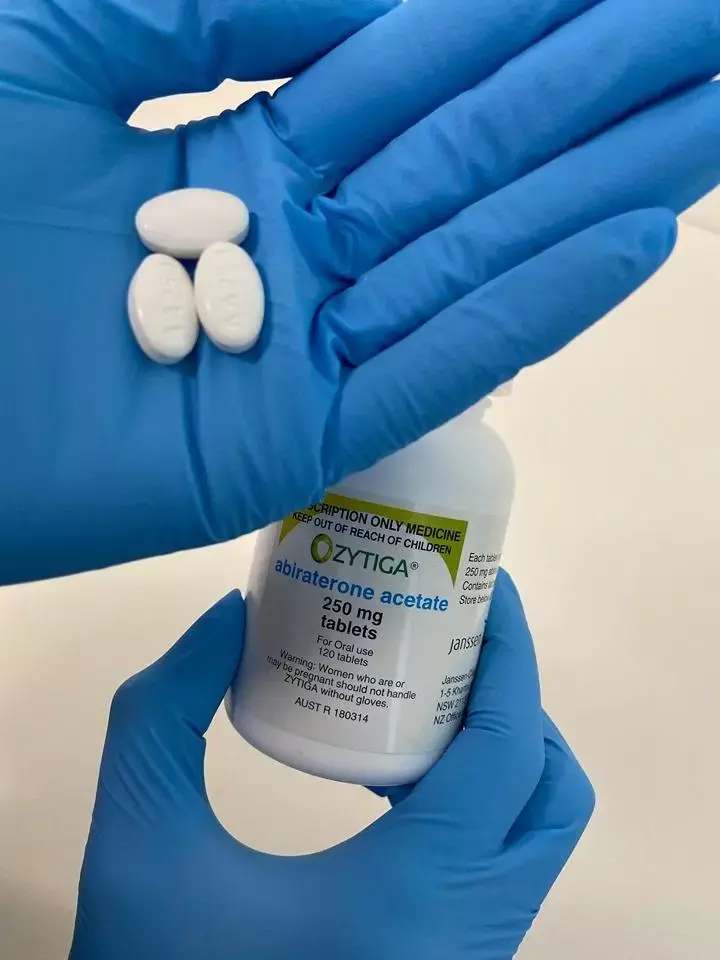- Home
- Medical news & Guidelines
- Anesthesiology
- Cardiology and CTVS
- Critical Care
- Dentistry
- Dermatology
- Diabetes and Endocrinology
- ENT
- Gastroenterology
- Medicine
- Nephrology
- Neurology
- Obstretics-Gynaecology
- Oncology
- Ophthalmology
- Orthopaedics
- Pediatrics-Neonatology
- Psychiatry
- Pulmonology
- Radiology
- Surgery
- Urology
- Laboratory Medicine
- Diet
- Nursing
- Paramedical
- Physiotherapy
- Health news
- Fact Check
- Bone Health Fact Check
- Brain Health Fact Check
- Cancer Related Fact Check
- Child Care Fact Check
- Dental and oral health fact check
- Diabetes and metabolic health fact check
- Diet and Nutrition Fact Check
- Eye and ENT Care Fact Check
- Fitness fact check
- Gut health fact check
- Heart health fact check
- Kidney health fact check
- Medical education fact check
- Men's health fact check
- Respiratory fact check
- Skin and hair care fact check
- Vaccine and Immunization fact check
- Women's health fact check
- AYUSH
- State News
- Andaman and Nicobar Islands
- Andhra Pradesh
- Arunachal Pradesh
- Assam
- Bihar
- Chandigarh
- Chattisgarh
- Dadra and Nagar Haveli
- Daman and Diu
- Delhi
- Goa
- Gujarat
- Haryana
- Himachal Pradesh
- Jammu & Kashmir
- Jharkhand
- Karnataka
- Kerala
- Ladakh
- Lakshadweep
- Madhya Pradesh
- Maharashtra
- Manipur
- Meghalaya
- Mizoram
- Nagaland
- Odisha
- Puducherry
- Punjab
- Rajasthan
- Sikkim
- Tamil Nadu
- Telangana
- Tripura
- Uttar Pradesh
- Uttrakhand
- West Bengal
- Medical Education
- Industry
Orchidectomy more Cardiotoxic compared to Medical Castration in Prostate Cancer patients
 IMAGE: A NOVEL FORMULATION OF THE PROSTATE CANCER DRUG ABIRATERONE ACETATE - CURRENTLY MARKETED AS ZYTIGA - WILL DRAMATICALLY IMPROVE THE QUALITY OF LIFE FOR PEOPLE SUFFERING FROM PROSTATE CANCER. view more CREDIT: HAYLEY SCHULTZ/UNISA
IMAGE: A NOVEL FORMULATION OF THE PROSTATE CANCER DRUG ABIRATERONE ACETATE - CURRENTLY MARKETED AS ZYTIGA - WILL DRAMATICALLY IMPROVE THE QUALITY OF LIFE FOR PEOPLE SUFFERING FROM PROSTATE CANCER. view more CREDIT: HAYLEY SCHULTZ/UNISAThe role of androgen deprivation therapy (ADT) in the treatment of prostate cancer is debatable. ADT has a rapid and dramatic clinical effect in men with symptomatic metastatic prostate cancer. ADT is widely regarded as the first-line treatment for symptomatic metastatic prostate cancer.
A new study discovered an increased risk of Acute Myocardial Infarction (AMI) in patients with prostate cancer, particularly those undergoing surgical castration rather than Gonadotropin-Releasing Hormone (GnRH) therapies.
This study was conducted by Wei-Chih Kan and team with the objective to compare the risk of major adverse cardiovascular and cerebrovascular events (MACCEs) in patients with prostate cancer who received either surgical castration or GnRH therapies. The findings of this study were published in The Journal of Urology.
From 2008 to 2017, the researchers used Taiwan Cancer Registry (TCR) and Taiwan's National Health Insurance Research Database (NHIRD) to identify 8,413 patients receiving GnRH therapies versus 694 receiving surgical castration. Following the study, the median follow-up period was three years.
The findings of this study are:
1. In patients receiving GnRH therapies or surgical castration, the crude incidences of 3-year mortality and MACCEs were 19.90% vs. 26.51% and 8.23% vs. 8.65%, respectively.
2. Despite no significant differences in MACCEs between groups after adjusting for age, cancer stage, and comorbidities, there was a slight increase in the incidence of acute myocardial infarction (AMI) in patients receiving surgical castration compared to those receiving GnRH therapies.
3. The mortality adjusted hazard ratios for MACCEs and AMI were 1.11 and 1.8-fold higher in patients receiving surgical castration, respectively, than in those receiving GnRH therapies.
4. Notably, in a subgroup analysis based on cancer stage, patients with cancer stage IV had the highest risk of AMI when receiving surgical castration versus GnRH therapies.
In conclusion, The findings raise concerns about the cardiac safety of surgical castration versus GnRH therapies.
Reference:
Kan, W.-C., Hsieh, K.-L., Chen, Y.-C., Ho, C. H., Hong, C.-S., Chiang, C.-Y., Wu, N.-C., Chen, M., Shih, J.-Y., Chen, Z.-C., & Chang, W.-T. (2021). Comparison of Surgical or Medical Castration-Related Cardiotoxicity in Patients With Prostate Cancer. In Journal of Urology. Ovid Technologies (Wolters Kluwer Health). https://doi.org/10.1097/ju.0000000000002340
Medical Dialogues consists of a team of passionate medical/scientific writers, led by doctors and healthcare researchers. Our team efforts to bring you updated and timely news about the important happenings of the medical and healthcare sector. Our editorial team can be reached at editorial@medicaldialogues.in.
Dr Kamal Kant Kohli-MBBS, DTCD- a chest specialist with more than 30 years of practice and a flair for writing clinical articles, Dr Kamal Kant Kohli joined Medical Dialogues as a Chief Editor of Medical News. Besides writing articles, as an editor, he proofreads and verifies all the medical content published on Medical Dialogues including those coming from journals, studies,medical conferences,guidelines etc. Email: drkohli@medicaldialogues.in. Contact no. 011-43720751


